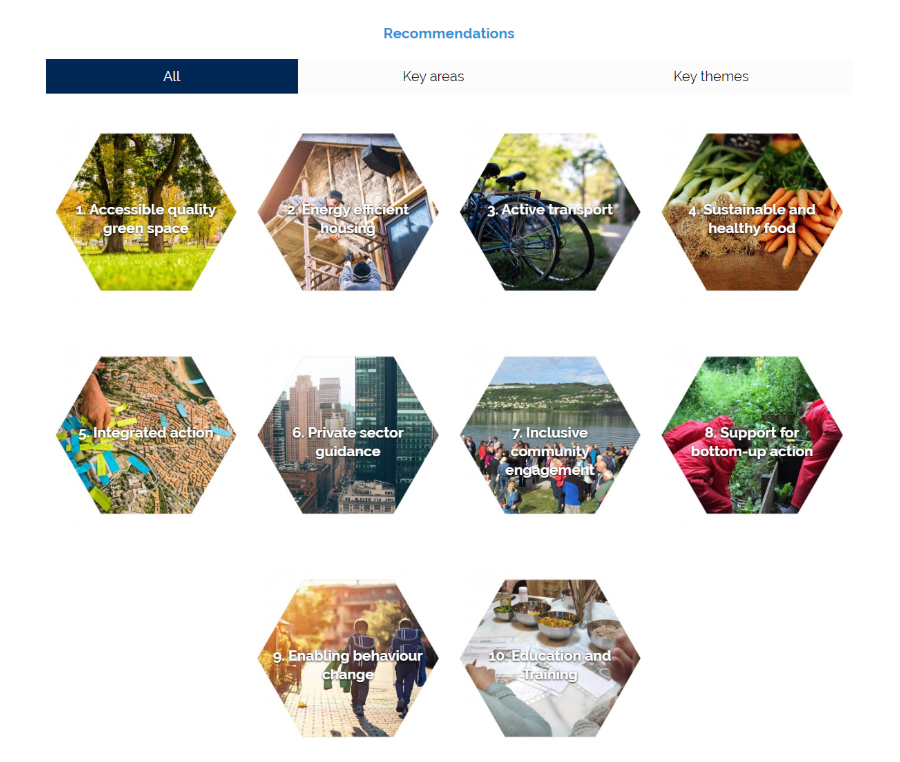Brussels, 9 December 2019 — A Policy Toolkit providing concrete recommendations for policymakers on how to move away from our current ‘take, make, consume, dispose’ models of growth and foster a more ‘INHERIT-able’ future was published today by the European INHERIT research initiative. The Toolkit provides recommendations for policymakers working at different levels of governance, from the EU to the local level. It aims to help them contribute to restoring the environment, promoting better health, and fostering greater equity – achieving a “triple-win”. It includes ten recommendations, and three concrete tools for action.
In ten recommendations, the Toolkit focuses on living (green space and energy efficiency), moving (active transport) and consuming (sustainable production and consumption of food), as well as on six on cross-cutting themes:
• Integrated action
• Private sector guidance
• Inclusive community engagement
• Support for bottom-up action
• Behaviour change
• Education and training
The INHERIT Toolkit also includes three concrete tools: a conceptual model for integrated governance, four positive future scenarios of what Europe could look like in 2040, and a database of over 100 promising practices, 15 of which are highlighted in more detail across the relevant recommendations.
The Toolkit will be presented on 10th December at the conference “A Future for all to INHERIT: Taking Action Now”. Its recommendations will serve to frame the debates which will take place amongst EU Health State Secretaries, including from the Finnish Presidency of the EU, high-level representatives from the European Commission and European Parliament, local policymakers, and leading researchers and economists, as they discuss what can be done to ensure a more socially, environmentally, and economically sustainable future.
Reflecting on what is needed at political level to elicit the necessary change towards an “inheritable” future, Sir Andy Haines, Professor of Environmental Change and Public Health at the London School of Hygiene and Tropical Medicine, who will open the conference, argues that “we need an economy which prioritises, health, happiness and fulfilling employment rather than economic growth for its own sake. The economy of the future will need to operate within environmental limits as current trends are unsustainable.”
Reducing inequalities will remain at the forefront of discussions during the conference, with Katarina Ivankovic-Knezevic, Director of Social Affairs at the Commission’s DG Employment, noting that “to help drive the transition of our economy and society on a sustainable path, we need to address inequalities and further invest in skills, social protection system, access to public services and innovation”.
The conference will conclude with a conversation between Sir Michael Marmot, who has dedicated his career to reducing health inequalities, and two young climate activists from Poland and the Netherlands. They will discuss what has motivated them to tackle these social and environmental crises, as well as some of the challenges they have faced and their hopes for the future.
For more information on INHERIT, please visit our website or follow us on Twitter.

